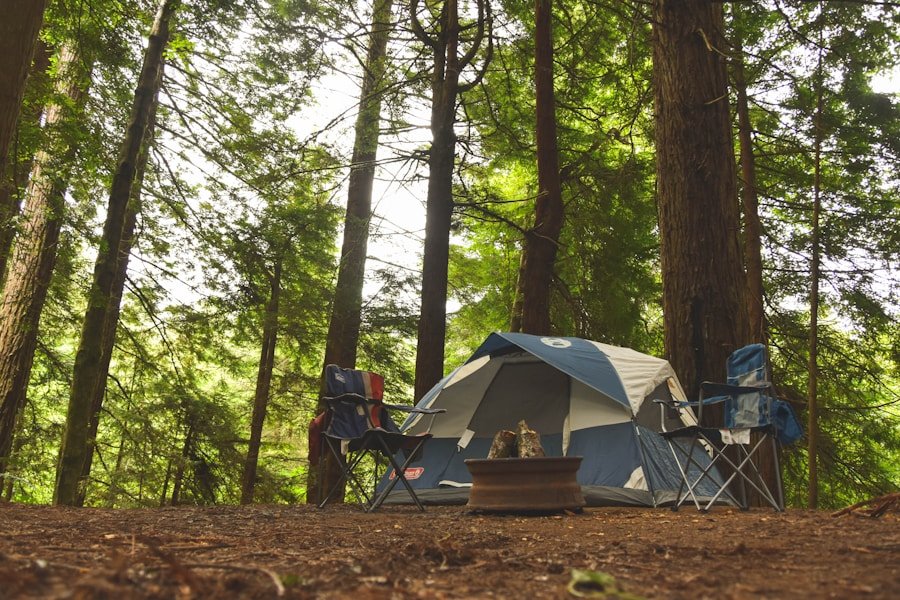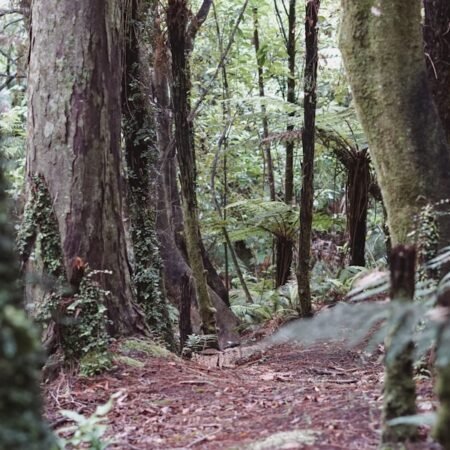When engaging in camping activities, it is essential to adhere to the principle of leaving no trace. This involves thoroughly cleaning up after oneself and ensuring that the campsite is left in its original state, or even improved. This includes collecting and properly disposing of all trash, food waste, and other debris in designated areas.
Additionally, leaving no trace requires being mindful of one’s impact on the natural environment and taking measures to minimize it. This can be achieved by using biodegradable soaps and detergents, avoiding damage to vegetation, and being cautious of one’s footsteps and camp setup. Furthermore, it is crucial to consider the potential impact of one’s actions on local wildlife.
This involves properly storing food and waste to prevent attracting animals and respecting their natural habitats. By following these guidelines, campers can help preserve the natural beauty of the camping area for future generations to appreciate.
Key Takeaways
- Always clean up after yourself and leave no trace to minimize environmental impact and preserve the natural beauty of the campsite.
- Follow campfire etiquette by keeping fires small, never leaving them unattended, and properly extinguishing them to prevent wildfires and ensure a safe experience for everyone.
- Respect the natural habitat of wildlife by observing from a distance, not feeding them, and properly storing food to avoid attracting animals to the campsite.
- Be considerate of fellow campers by controlling noise levels, especially during quiet hours, and being mindful of how your actions may impact others’ enjoyment of the outdoors.
- When choosing a campsite, find the right balance between comfort and conservation by selecting designated areas, avoiding fragile ecosystems, and minimizing your footprint on the environment.
Campfire Etiquette: Dos and Don’ts for a Safe and Enjoyable Experience
Building a Safe Campfire
When building a campfire, always use a designated fire ring or pit if available, and never leave a fire unattended. It’s also important to use only local firewood to prevent the spread of invasive species, and to fully extinguish the fire before leaving the campsite.
Environmental Considerations
In addition to following these safety guidelines, it’s also important to be mindful of the impact your campfire may have on the local environment. This means avoiding building fires in areas with sensitive vegetation, and using only dead wood that can be easily replenished.
Practicing Good Campfire Etiquette
By following these simple dos and don’ts for campfire etiquette, you can help ensure that everyone has a safe and enjoyable experience while camping.
Wildlife Interaction: Respecting the Natural Habitat of Animals
When camping in a natural environment, it’s important to remember that you are a guest in the home of many different species of wildlife. As such, it’s important to be respectful of their natural habitat and take steps to minimize your impact on their environment. This means properly storing food and garbage to prevent attracting animals, and being mindful of where you set up your camp to avoid disrupting their natural behaviors.
It’s also important to observe wildlife from a distance, and never approach or feed them. In addition to being respectful of wildlife, it’s also important to take steps to protect them from harm. This can include properly storing food and garbage to prevent attracting animals, and being mindful of where you set up your camp to avoid disrupting their natural behaviors.
By following these simple guidelines, you can help ensure that the local wildlife remains safe and undisturbed during your camping trip.
Noise Control: Consideration for Fellow Campers
| Do’s | Don’ts |
|---|---|
| Dispose of waste properly | Leave trash behind |
| Respect wildlife | Disturb or feed wildlife |
| Follow campsite rules | Ignore campsite regulations |
| Be mindful of noise levels | Be loud and disruptive |
| Leave no trace | Damage natural surroundings |
One of the most important aspects of camping etiquette is being considerate of your fellow campers. This means being mindful of the noise you make, especially during quiet hours. It’s important to remember that sound carries easily in a natural environment, and what may seem like a quiet conversation or music to you can be disruptive to others.
It’s also important to be respectful of others’ privacy and personal space, and to avoid intruding on their campsite without permission. In addition to being mindful of noise levels, it’s also important to be respectful of others’ need for peace and quiet. This means refraining from using loud or disruptive equipment, such as generators or power tools, especially during quiet hours.
By being considerate of your fellow campers and following these simple guidelines for noise control, you can help ensure that everyone has an enjoyable and peaceful camping experience.
Choosing a Campsite: Finding the Right Balance Between Comfort and Conservation
When choosing a campsite, it’s important to find the right balance between comfort and conservation. This means selecting a site that is both comfortable for you and your fellow campers, while also being mindful of its impact on the natural environment. It’s important to choose a site that is already established, if possible, to minimize damage to vegetation and soil.
It’s also important to avoid setting up camp near water sources or in areas with sensitive vegetation. In addition to choosing a suitable campsite, it’s also important to be mindful of how you set up your camp. This means avoiding damaging vegetation or disturbing wildlife when setting up tents and other equipment.
By following these simple guidelines for choosing a campsite, you can help ensure that the natural beauty of the area is preserved for future generations to enjoy.
Proper Waste Disposal: Minimizing Environmental Impact
Disposing of Trash and Food Waste
When camping, it is essential to dispose of all trash, food scraps, and other waste in designated areas, such as trash receptacles or compost bins. This helps keep the campsite clean and prevents wildlife from being attracted to the area.
Managing Non-Biodegradable Waste
In addition to disposing of biodegradable waste, it is equally important to pack out non-biodegradable waste, such as plastic wrappers and aluminum cans, and dispose of them properly when you return home. This helps prevent pollution and reduces the risk of harming wildlife.
Handling Human Waste and Greywater
Properly handling human waste and greywater is also crucial when camping. This involves using designated toilets or digging a cathole for human waste, and properly disposing of greywater away from water sources. By following these simple guidelines, we can minimize our environmental impact and preserve the natural beauty of the camping area.
Camping Etiquette: Tips for Being a Considerate Camper
In addition to following specific guidelines for leave no trace, campfire etiquette, wildlife interaction, noise control, choosing a campsite, and proper waste disposal, there are also some general tips for being a considerate camper. This includes being respectful of others’ privacy and personal space, refraining from intruding on their campsite without permission, and being mindful of noise levels during quiet hours. It’s also important to be respectful of the local wildlife and their natural habitat, and take steps to minimize your impact on their environment.
In addition to being considerate of others and the local wildlife, it’s also important to be respectful of the natural environment as a whole. This means taking steps to minimize your environmental impact by leaving no trace, properly disposing of waste, and choosing a campsite that is both comfortable for you and mindful of its impact on the natural environment. By following these simple tips for camping etiquette, you can help ensure that everyone has an enjoyable and peaceful camping experience while respecting nature and fellow campers.
In conclusion, camping is a wonderful way to connect with nature and enjoy the great outdoors. However, it’s important to remember that with this privilege comes responsibility. By following these simple dos and don’ts for camping etiquette, you can help ensure that everyone has an enjoyable and peaceful experience while respecting nature and fellow campers.
Whether it’s cleaning up after yourself, being mindful of noise levels, or choosing a suitable campsite, there are many ways to minimize your environmental impact and preserve the natural beauty of the area for future generations to enjoy. So next time you head out into the wilderness for a camping trip, remember these simple guidelines for being a considerate camper and leave no trace behind.
FAQs
What are some important do’s of camping?
Some important do’s of camping include packing out all trash, respecting wildlife and their habitats, following Leave No Trace principles, and being considerate of other campers.
What are some important don’ts of camping?
Some important don’ts of camping include leaving a campfire unattended, disturbing wildlife, littering, playing loud music, and trespassing on private property.
How can campers respect nature while camping?
Campers can respect nature while camping by following Leave No Trace principles, staying on designated trails, minimizing campfire impact, and properly disposing of waste.
How can campers respect fellow campers while camping?
Campers can respect fellow campers while camping by keeping noise levels down, being mindful of shared spaces, and following campground rules and regulations.
Why is it important to follow camping etiquette?
Following camping etiquette is important to preserve the natural environment, protect wildlife, and ensure a positive experience for all campers. It also helps maintain the beauty and integrity of camping areas for future generations.













